From sweets to a university, Punjab's Lovely Group is far from done
It started from sweets, then came Lovely Professional University and real estate and an EV play—and they are far from done


‘Ab laddu bechne wale degree bechenge (now sweets sellers will sell degrees)’ is a jibe the Lovely Group was subjected to when it first thought of starting a professional higher education institution in Punjab. It got a lot of backlash given its inexperience in the domain and lack of private universities in the state.
Lovely Professional University, the group’s flagship business, is a result of years of toil to prove its competency in running an educational institution. Started in 1999, the group had to wait for years to get approvals and attract students. It wasn’t until 2006 that the university got official status. “Any business is meant to run into obstacles… the strength is in not getting bogged down and making efforts in the right direction," says Ashok Mittal, 59, president of Lovely Group, and founding chancellor of Lovely Professional University (LPU).
After 16 years of being in the business, LPU has 35,000 students from across 50 countries—a considerably high number for a private university. The Mittal family is leaving no stone unturned to grow out of the ‘laddu walas’ image.
The 60-year-old family-run business that started with Lovely sweets in Jalandhar, Punjab, today has three business verticals that include Lovely Automobiles, which deals with automobile dealerships across Punjab, and LPU, a private higher education institution. The partnership firm, which has its verticals registered independently, registered a turnover of ₹1,153 crore for 2020-21, with a claimed investment of ₹912 crore across the three verticals. It strategically ventured into completely unrelated businesses to eventually become a multi-business goliath in Punjab.
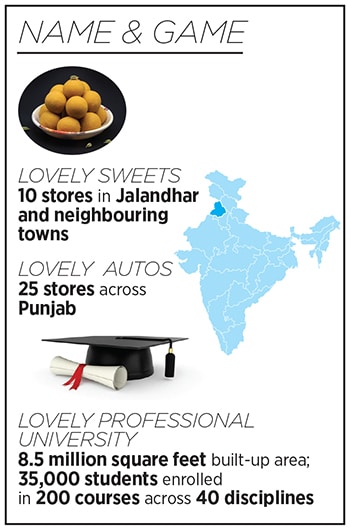 The family’s latest bet is in the real estate business. Having bought a large portion of land in and around Jalandhar, the Lovely Group is now constructing housing properties across the city. “Ramesh, my brother, is fond of buying land," smiles Ashok Mittal. “Over the years, we have accumulated quite a bit of land in the Jalandhar district, which we will now turn into a business opportunity."
The family’s latest bet is in the real estate business. Having bought a large portion of land in and around Jalandhar, the Lovely Group is now constructing housing properties across the city. “Ramesh, my brother, is fond of buying land," smiles Ashok Mittal. “Over the years, we have accumulated quite a bit of land in the Jalandhar district, which we will now turn into a business opportunity."
“The pandemic has been a hard time for everyone, but it helped us realise that people want escape spaces. Lavish farmhouses offering experiential living is what we want to build," says Amit Mittal, COO of Lovely Automobiles, and the eldest son of the chairman, Ramesh Mittal. “We’ll start by targeting customers with heavy pockets for the plotted houses, and once that endeavour is successful, we’ll build flats and commercial spaces around those flats." Of the land that the group owns, construction has started on over 100 acres close to the university.
“There is a growing demand for properties in small towns. This is an unexplored market in Jalandhar. No big player has ventured into this space, which poses a huge opportunity for us," says Aman Mittal, vice president, LPU, and the younger son of Ramesh. The group wants to test the waters in Jalandhar and plans to, “become a real estate developer with a pan-India presence eventually", says Aman.
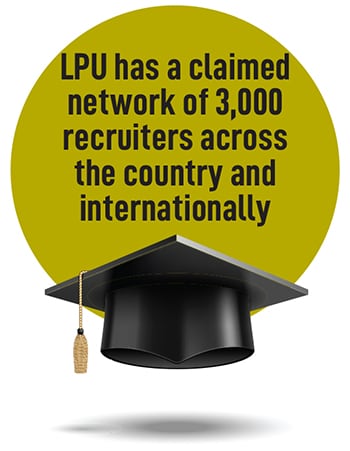
Lovely Group employs close to 5,500 people across the three verticals. With the real estate expansion, an estimated 2,000 more jobs are likely to be created in two years.
The group is always on the prowl for the next big opportunity. Under its automobiles business, the family is exploring the electric vehicle (EV) market. “Electric vehicles are an up-and-coming market. We want to create our electric vehicle label, with the expertise of an automobile manufacturing giant," reveals Ashok. With work still in the early stages, the group plans to, “build an infrastructure to support electric vehicles. Charging centres, after-sales services, and vehicle batteries are all segments of the business we are exploring", says Amit.
“We want to stay relevant," says Ashok. “Every business we venture into, every step we take is focussed on how we can offer something consequential to the customer that hasn’t been explored before, at least in the Punjab region."
The Lovely Group started with a small sweets shop in the Jalandhar cantonment, about 10 km from the city, in 1961. “Our grandfather had migrated from Rajasthan and we were relatively new to Punjab. My father, Baldev Raj Mittal, started the sweets business to make ends meet," says Ashok. “Our first shop was unlike any other sweets shop at the time. It was a closed-door shop where people couldn’t guess what was going on inside and was open for only two hours a day. The idea was to get people curious about what’s happening in the store, which did work for us initially."
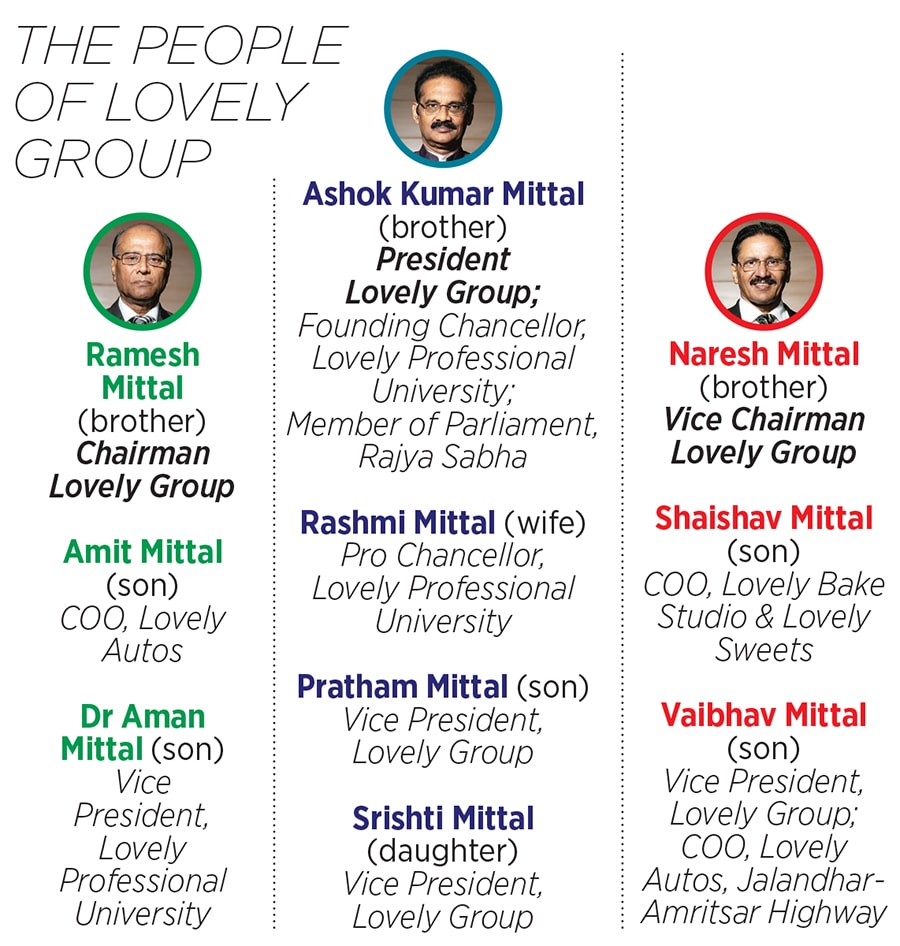 Unfamiliarity with Punjab’s sweets culture bode well for Baldev Raj Mittal, Ramesh’s father. “Laddus were made of badi boondi, he experimented with chotti boondi, which soon became a success. He introduced the concept of motichoor ke laddu in Punjab," claims Ashok. The laddus became a hit and led them to expand to a second store in Jalandhar city.
Unfamiliarity with Punjab’s sweets culture bode well for Baldev Raj Mittal, Ramesh’s father. “Laddus were made of badi boondi, he experimented with chotti boondi, which soon became a success. He introduced the concept of motichoor ke laddu in Punjab," claims Ashok. The laddus became a hit and led them to expand to a second store in Jalandhar city.
Lovely soon became a household name for Indian sweets. By mid-1970s, the sweets had a decent standing in Jalandhar, but the business wasn’t able to scale. It was at this time that Ramesh joined the business. “Ramesh was a great helping hand for our father. Soon, Naresh (the middle son) also joined the business," says Ashok, the youngest of the three siblings. Under Ramesh and Naresh, the business scaled from retail to wholesale. “We expanded to snacks and cookies, and started distribution pan-India," adds Ashok.
The family tried its hands on several businesses, which failed. “We experimented with hydro projects, hospitals and automotive parts manufacturing, but they didn’t work," says Ashok, who entered the business in 1990 and the family started exploring automobile dealerships. “We wanted to get into an unconventional market. The craze for automobiles in Jalandhar was just building up and we decided to jump at the opportunity."
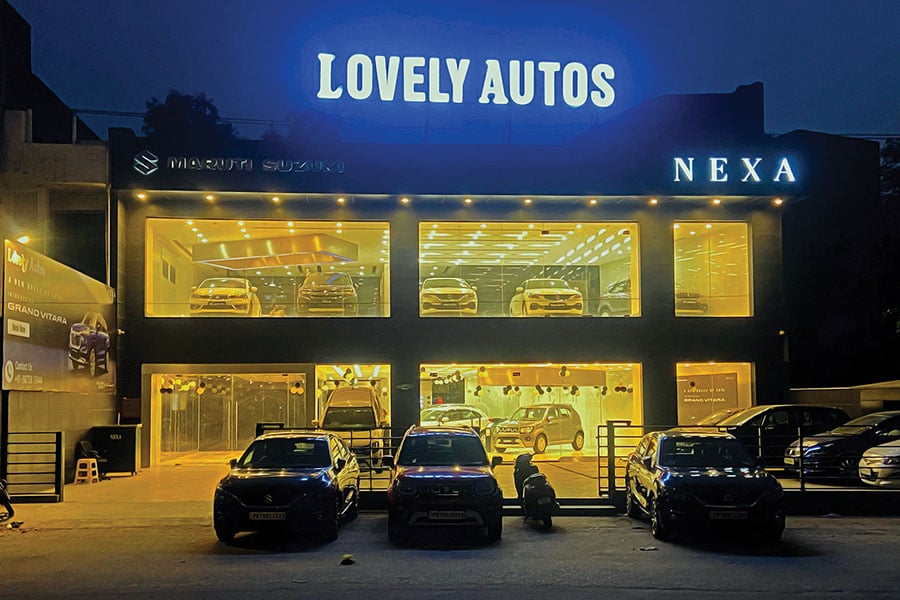
Under automobiles, the group is exploring the EV market Image: Madhu Kapparath
The expansion came with several roadblocks. The family was deemed incompetent. “People used to say ‘Ab laddu wale gaadi bechenge [the sweet makers will now sell cars]’. It was especially difficult to get [automakers] Bajaj on board, who we had to chase for years," Ashok says.
After multiple pitch meetings and Lovely’s efforts to convince Bajaj, the automakers took a leap of faith and invested in Lovely in 1991. This was followed by Maruti Suzuki in 1996. “The family is passionate about the businesses they get into," says Shashank Srivastava, executive director, Maruti Suzuki India. “We started with just one showroom and today Lovely Autos has nearly 25 showrooms and outlets across Punjab. This journey and growth has been stupendous."
As the business was growing, the sons got involved. The entrepreneurial bug among the then-active four members was on the lookout for sectors for expansion. By 1999, the family found higher education as the sweet spot.
The Lovely Group targeted professional education, as there wasn’t any university in Jalandhar focusing on the same.
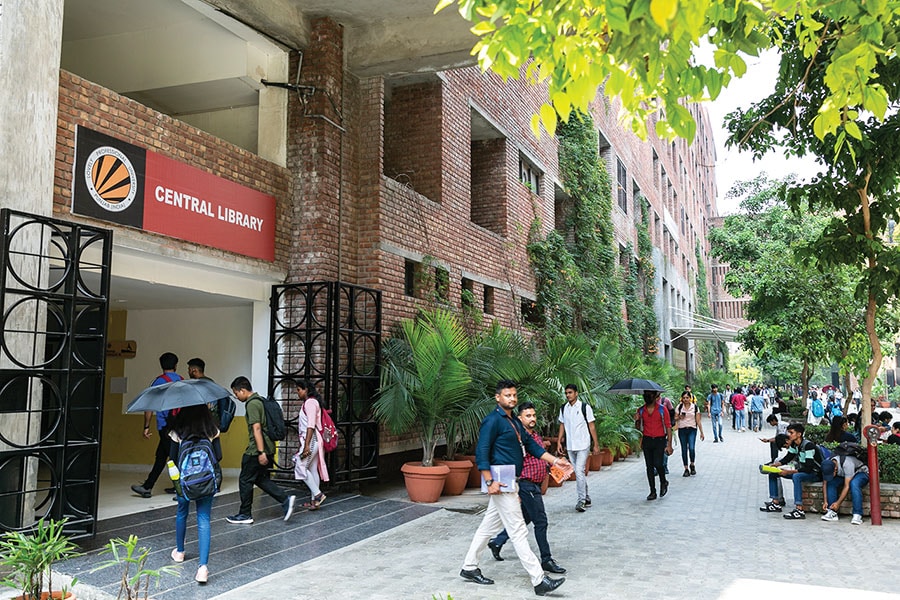 The Lovely Professional University began in 2006Image: Madhu Kapparath
The Lovely Professional University began in 2006Image: Madhu Kapparath
“There were two reasons for venturing into this space. We wanted to reimagine education beyond textbooks and exams, and the other was that it would offer a social stature and a means to give back to society," says Ashok.
By 2001, they registered as the International Institute of Management offering four management courses under Punjab Technical University (PTU). This failed. The institute wasn’t able to attract students despite multiple promotions and advertisements. “Soon after getting in the business, we realised this wouldn’t work. Under PTU, neither had we attracted students, nor were we getting any independence to operate our way. That’s when we decided to go private," says Aman.
The family then rebranded the institute to Lovely Professional University, where it could experiment with curriculum and operations.
This wasn’t without challenges. The typical rhetoric of, ‘laddu bechne wale ab degree bechenge’ followed. “We were called fools to enter this segment. There wasn’t any professional private university established in Punjab at that time and getting approvals was a task… it took us years of convincing the educational board and the chief minister (CM)," says Aman.
Ashok adds that it was Amarinder Singh, the-then CM of Punjab, who gave the green signal for the university set-up. “He was met with a lot of sceptics warning him, but he said if it fails, we’ll see, but it’s worth giving a shot," Ashok reminisces.
With the CM’s approval, and years of research on the demand of the youth, LPU began in 2006. According to the family, its USP was that it was a career-focussed professional educational institute with an emphasis on generating jobs for students.
Today, LPU has 200 programmes across 40 disciplines with a claimed network of 3,000 recruiters across the country and internationally, and a built-up area of 8.5 million square feet.
Few things have worked in LPU’s favour, beyond the obvious lack of a competitor in the region. Aman’s push to internationalise the university has contributed substantially to its expansion—LPU has close to 3,000 international students and has tied up with 300 global universities across courses. Another is the lack of stringent criteria for student admission.
While this has attracted students, the credibility of LPU was under question since it would admit students without a set bar for scores, unlike most reputed universities in India. On realising this drawback, in 2021, it introduced the LPU National Entrance and Scholarship Test, an aptitude test for entrance to all courses in the university. “We now take students only when they clear the entrance exam," says Rashmi Mittal, pro-chancellor of LPU, and Ashok’s wife.
Puneet Kumra, senior director of talent acquisition at Capgemini, says corporates’ engagement with the university has yielded fruitful results. “We have been working with LPU for many years and the engagement has varied from training at their campus to the recruitment of students. Their innovative way of delivering education is being recognised by Times Higher Education, indicating that they are moving in the right direction," he adds.
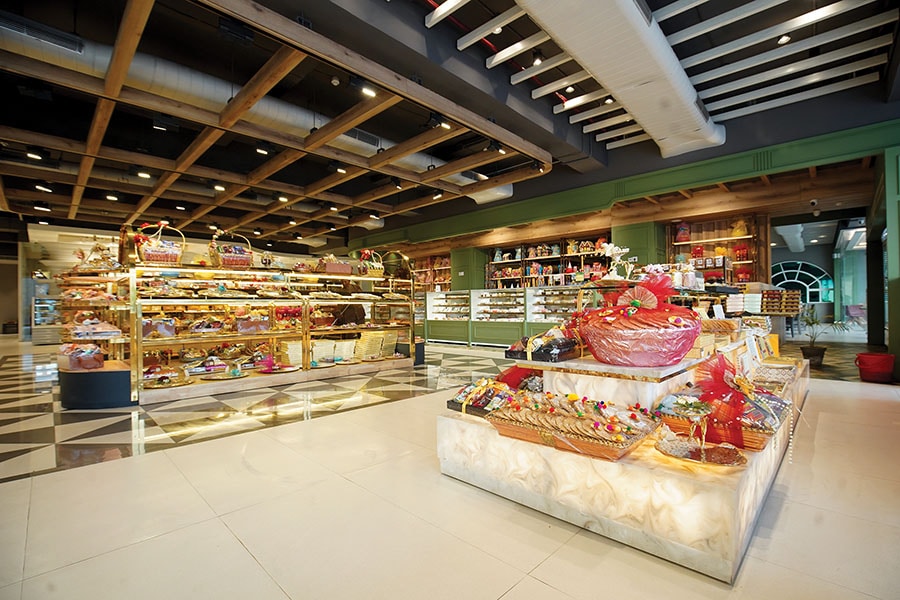 The plan is to expand Lovely Sweets and Bake Studio from 10 stores at present to about 50 physical stores in two years
The plan is to expand Lovely Sweets and Bake Studio from 10 stores at present to about 50 physical stores in two years
Shaishav Mittal, the elder son of Naresh Mittal, expanded Lovely sweets to a Lovely Bake Studio that deals with everything related to a bakery. He’s currently the COO of Lovely Sweets and Bake Studio, and says that work is underway to expand the physical stores from 10 to close to 50 in two years. “These stores will be across the Amritsar to Delhi belt, starting from Amritsar where we see a huge market to the highway leading to Delhi," he says.
The eldest brother, Ramesh Mittal has been pivotal in making strides in the rather-unexplored domains of business. He introduced the idea of opening the store 24x7. “There was hesitance in the family about opening a 24x7 shop as everyone wondered who’d want something late at night in a small town like Jalandhar. But we knew there would be scope… late-night sweet cravings, forgotten cakes for birthday and anniversary celebrations, and late-night drives create a market, however small to begin with," says Amit. Lovely Bake Studio claims to be the only 24x7 shop in Jalandhar.
Ramesh, the family patriarch, encourages others in the family to take risks and be pragmatic. “Be ready to take risks, look at the bright side and learn from the mistakes. Your efforts should always be focussed on improving the lives of others, not pulling them down. This will always lead you to success," he says.
First Published: Oct 07, 2022, 11:08
Subscribe Now